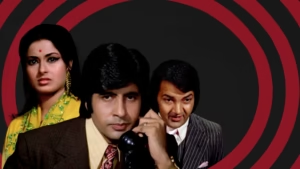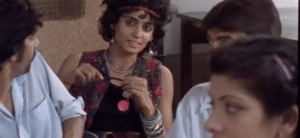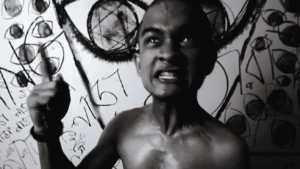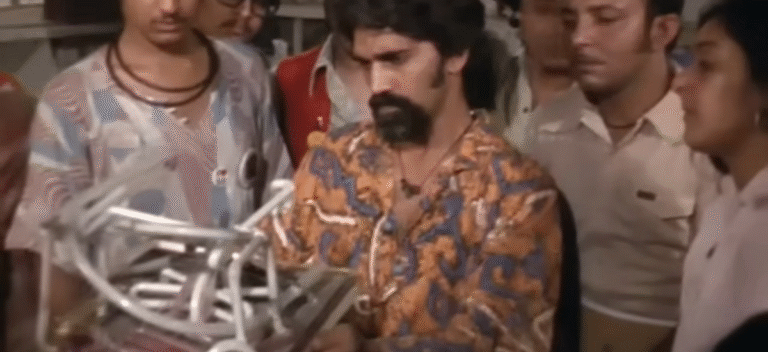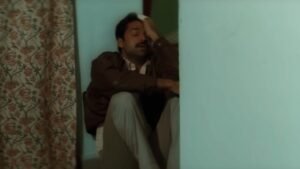Blending folklore with modern problems, Kantara is a film that delivers on all fronts. From insane cinematography to a stellar story, it has something for everybody — and that’s a rare feat to achieve in any film.
Director Rishabh Shetty (who also portrays the lead character Shiva) has sought inspiration from some real events and traditions, such as the Bhoota Kola dance and deities like Panjurli and Guliga. As such, the story is rich and intricate, leaving us with much to unpack.
So, let’s get right to it and debunk the ending of Kantara.
Consider yourself warned: Spoilers ahead!
Table of Contents
Kantara Plot Overview

A long time ago, a king had everything he could possibly want — except happiness.
Only when he comes across the holy stone of Panjurli does he find any peace. He wants to take it back with him, but it belongs to the villagers living in the forest.
In exchange for the stone, the king grants the villagers ample land.
Panjurli, however, warns the monarch: if he or any future ancestor tries to take back the land from the village, the consequences will be dire. Even if Panjurli were to forgive the king, Guliga would not.
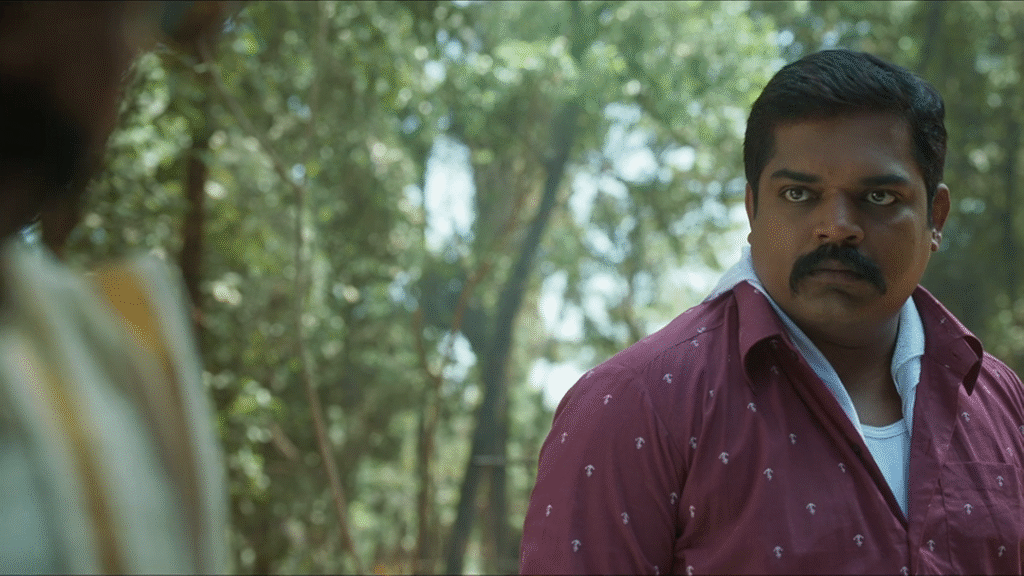
Fast forward to modern day, and we meet Kantara’s hero, Shiva. His father, a Bhoota Kola performer, had previously disappeared into the forest after an argument with the king’s descendant, who died a gruesome death.
Hence, as an adult, Shiva doesn’t want to have anything to do with the performance.
Everything changes for Shiva, however, when a Deputy Range Forest Officer (DRFO) named Murali shows up to convert the village land into a forest reserve. Shiva and Murali quickly become enemies.
What unfolds is an intense story of greed, community, and nature as Murali, Shiva, and Devendra, the landlord (and a descendant of the king), risk it all over the forest lands.
Kantara Ending
Does Shiva Die?

As the land dispute heats up and Shiva realises the landlord killed his cousin Guruva, the protagonist realises his true calling is to defend his people and their land. After all, he is the only one who can actually see the demigods, and so after he realises the landlord’s notorious land grab plan, he confronts Devendra by visiting the latter’s house.
After this interaction, the landlord gives in to his insatiable greed and rounds up his men to go and attack the village people.
Shiva and Murali join hands, and the entire village unites to fight the tyranny of the landlord, who usurped the villagers’ land while pretending that he was helping them with their documents.
A massive fight breaks out (which is so well-choreographed, I must say), and it seems like all hope is lost when the landlord’s henchman chokes Shiva and throws him to the ground.
However, Shiva’s head hits the stone of Panjurli, and Guliga then possesses the protagonist so that he can righteously defend the land and his people.
So, no, Shiva does not die. Instead, he uses Guliga’s strength to kill the landlord and his henchmen, thereby securing victory for the villagers.
Is Shiva Possessed by the Demigod?
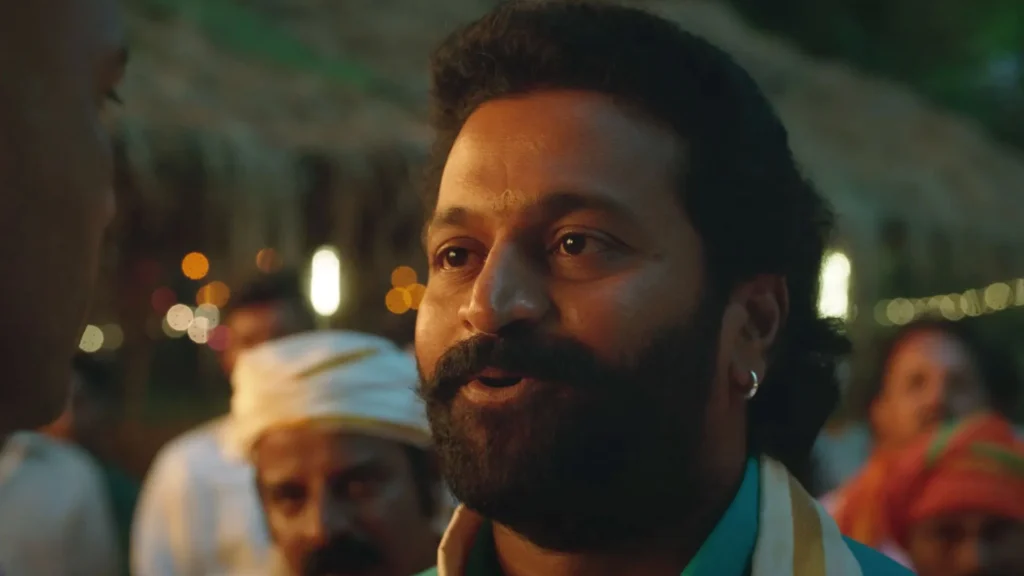
After the intense fight scene is when things get really interesting.
Shiva is not your typical hero in the sense that he does whatever he wants, be it drinking or hunting or gambling. But after he kills Devendra, we see Shiva perform as the new Bhoota Kola dancer.
In a nod to one of the first scenes of the film, Shiva, possessed by the spirit of Guliga, runs into the forest and disappears — just like his father did all those years ago.
We then see his son ask what happened to Shiva, getting no answer in return.
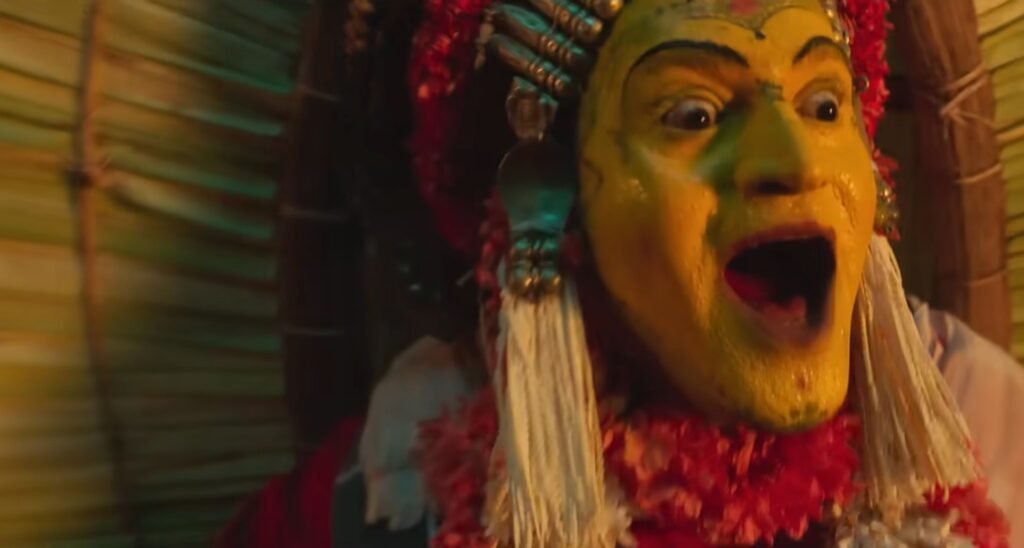
So, it becomes clear that the demigod now possesses Shiva and will likely use him to guide the next “saviour” of the village, just as was done with the protagonist and his father.
After all, at the beginning of Kantara, when the king’s descendant asks Shiva’s father to give him back ‘his’ land, donned in the demigod’s avatar, he runs into the forest and vanishes. Years later, only Shiva is able to see this iteration of Panjurli.
In fact, Shiva sees the demigod at multiple points throughout the film, but the most intense scenes come after his cousin dies, when Panjurli is bleeding tears, almost as if their emotions mirror each other.

Then, Shiva saves the village in the same manner as his father had previously, and so it becomes clear that he was the “chosen one.” Even though he ran away from doing the Bhoot Kala performance his entire life due to the disappearance of his father, Shiva steps up when his village and community need him.
In another scene, we even hear Shiva and Leela’s son ask Sundara about what happened to his dad, making it clear that he never returned from the forest.
Whether it will trigger the same cycle of abandonment in the child as it did in Shiva, or if he, too, will become the next protector of the village, is up to your imagination.
